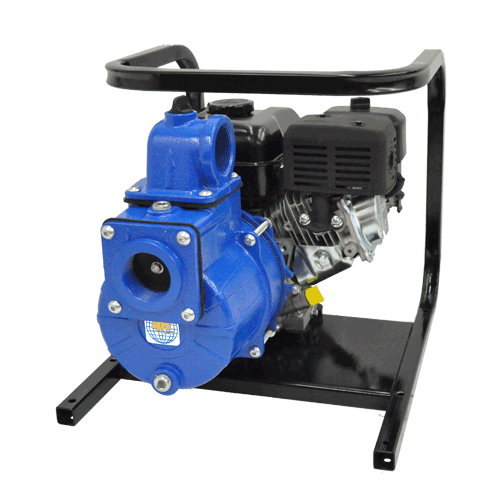Portable Water Pumps

Portable Water Pumps
We’re often asked if we carry portable water pumps. The simple answer is clearly yes. But, the more important concern is for what purpose do you need to use a portable water pump?
When searching for any pump, being clear about the intended, and even potential use, is very important. While it may seem that any portable pump with enough horsepower is adequate, that assumption will lead to many issues. It can also be an expensive or dangerous mistake.
What is the portable water pump pumping?
One of the most common uses for water pumps is to dewater and area. This may be a flooded field, construction site, basement, or any body of standing water. When this is the use, the pumps often handle far more than just water. The water has suspended solid, or “stuff” floating in it.Portable trash pumps are intended, as the name suggest, to handle water with suspended solids. Depending on the type and size of the suspended solids, you may be able to use a semi-trash pump (for smaller items), or a centrifugal trash pump.
But, if there is mud or silt, these elements may be very small, but can be too abrasive for the mechanical components of a centrifugal pump. In these cases, you will be better suited with a diaphragm trash pump. Using the wrong pump in this situation can lead to costly damage.
When pump discharge is key
To some people portable means being able to carry the pump, or perhaps have it on a cart to be wheeled. But, for portable irrigation or firefighting, portable often means mounted to a vehicle, and used to “place” water in specific areas.Irrigation or firefighting need to discharge the water over a greater distance, requiring a higher psi. These applications are less about removing water from a location and more about being able to send the water, or place it, accurately upon discharge. This has implications for the type of pump (no suspended solids to deal with, but higher pressure) as well as connected hoses and nozzles.
Where is the portable pump being used?
Beyond the pump itself, portable water pumps being used in remote locations, or for firefighting, may be better suited with a propane conversion kit rather than gasoline. Where fuel transportation may be difficult, or exposed gas/gas vapors may be dangerous, using propane can provide a layer of stability and safety.Conversely, in more controlled environments you may be able to rely on electric motors to power the portable water pump. In construction or other environments where there is a dependable electric generator, an electric motor powered portable pump may be preferable.
While there may be many types of portable water pumps, they are not all correct for your application. When looking for a portable pump, be very clear about how it will be used. This also includes potential uses; it is to easy to “just use it once” for the wrong thing, and find it ends up damaged. The more you can tell us about your application for the pump, the better we will be able to recommend pumps and pump options that will best meet your needs.

